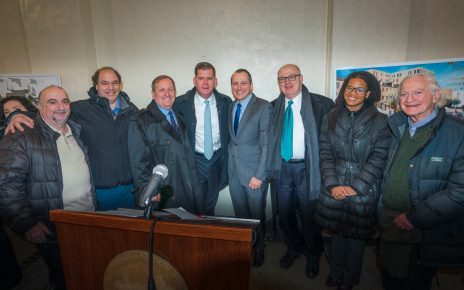
The Housing Bond Bill, an act that will finance the production and preservation of housing for low and moderate income residents, was signed into law last Thursday by Governor Baker.
Senator Boncore co-chaired the committee that negotiated the final version of the bill along with Representative Honan, after leading it through the Senate earlier this year. This is the largest piece of legislation Senator Boncore has guided through the Housing Committee as its chair.
The bill enacts a $1.8 billion investment in the production and preservation of housing affordable for low- to moderate-income households, supportive housing, and housing serving vulnerable populations. It also extends tax credits to diversify the state’s housing stock and invests in solutions to meet the current market’s demands.
Senator Boncore stressed the importance of the bill saying, “preserving and producing affordable housing is central to sustaining the Commonwealth’s economic prosperity.”
The housing bill covers the following investments:
- Extends the state’s ability to commit $20 million per year in tax credits to affordable housing projects until 2025.
- Authorizes an additional $5 million per year in tax credits to support preservation of existing affordable housing.
- Extends the state’s ability to commit $10 million per year in tax credits to market-rate housing projects in Gateway Cities until 2024.
- Authorizes an additional $100 million to fund new housing development for residents across the income spectrum.
- Authorizes the use of home modification funding to construct accessory dwelling units for elders and individuals with disabilities.
- Authorizes up to 10% of the above funds to be used to support landlord expenditures to modify units for tenants with disabilities.
- Expands MassHousing’s authorizing language, to allow the quasi-public agency to provide contract administration, loan servicing, and other services to other states’ housing finance agencies.




I was hoping you could give me feedback on some ideas I had regarding creating more low income housing in Boston. How many of these ideas could work, and what changes in laws, etc would be needed to make them more viable? Many thanks- http://ljgraf.com/City_Proposals/AffordableHousing.pdf